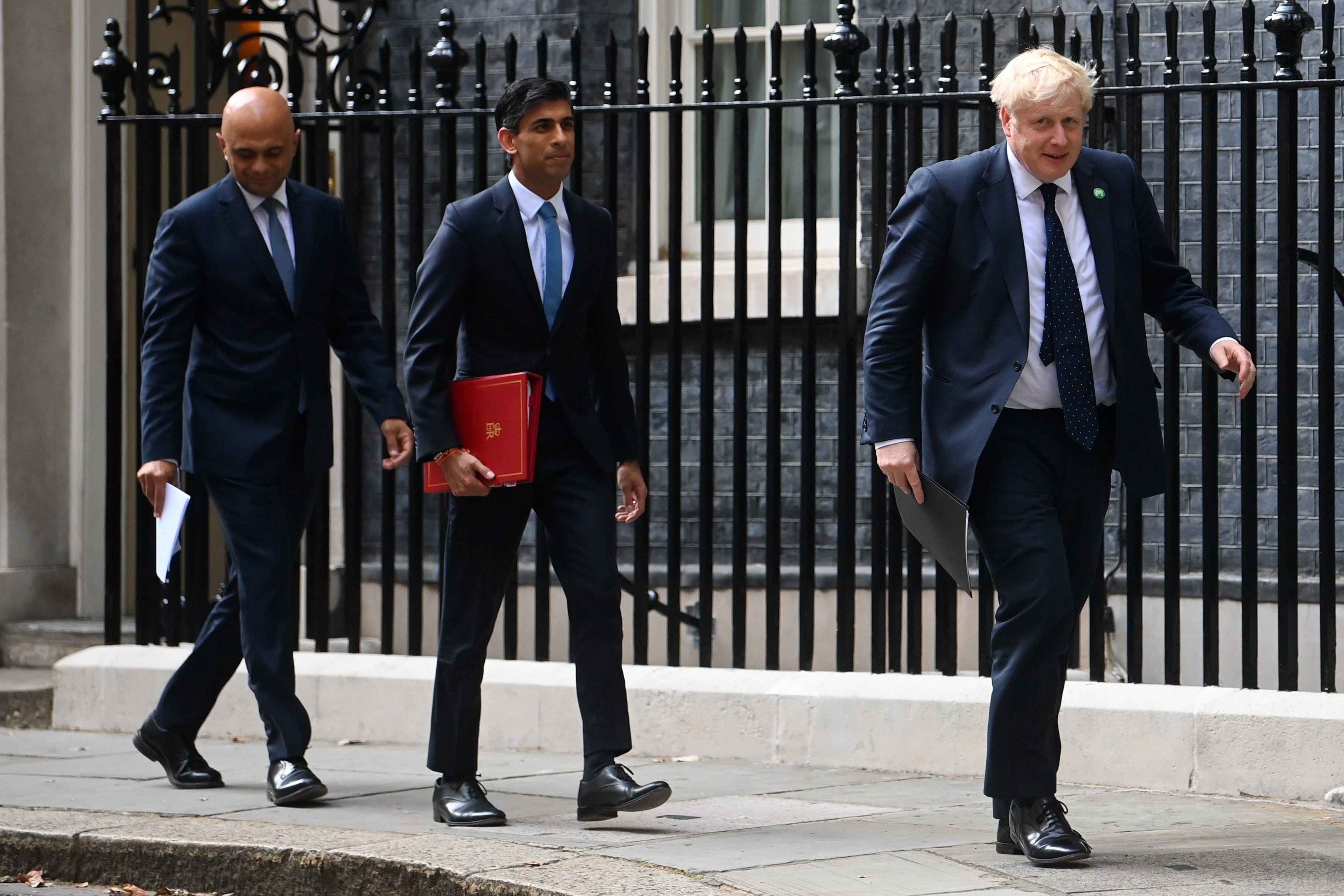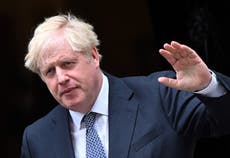‘Back, camel, straw and a grope for good measure’: The road to Sunak and Javid’s double resignation
Analysis: Calculated choices from the former chancellor and health secretary came up with the same answer: time’s up for Johnson


Your support helps us to tell the story
From reproductive rights to climate change to Big Tech, The Independent is on the ground when the story is developing. Whether it's investigating the financials of Elon Musk's pro-Trump PAC or producing our latest documentary, 'The A Word', which shines a light on the American women fighting for reproductive rights, we know how important it is to parse out the facts from the messaging.
At such a critical moment in US history, we need reporters on the ground. Your donation allows us to keep sending journalists to speak to both sides of the story.
The Independent is trusted by Americans across the entire political spectrum. And unlike many other quality news outlets, we choose not to lock Americans out of our reporting and analysis with paywalls. We believe quality journalism should be available to everyone, paid for by those who can afford it.
Your support makes all the difference.Shortly after the clock struck 6pm on Tuesday, two of the most senior figures in Boris Johnson’s cabinet broke a gentle sweat, and decided to pick up the knife. They published their resignation letters just as a broadcast interview with Boris Johnson aired on the BBC.
Damning in different ways and just nine minutes apart, the resignations were not, according to those close to the former chancellor and health secretary, coordinated.
Still, the political maths of the two former bankers was certainly arrived at the same answer: the Johnson stock had bombed and it was time to cut the losses.
Rishi Sunak’s unhappiness, according to one of his senior officials, had been writ large for several weeks. “Back, camel, straw and a grope for good measure”, one texted. He had already considered resigning in the aftermath of revelations about his wife’s tax affairs.
The possibility of quitting was also considered in the aftermath of the two by-election defeats that saw Oliver Dowden, Mr Sunak’s friend quit as chair of the Conservative party.
However, there’s no doubt that Mr Sunak took the allegations of sexual misconduct against the deputy chief whip – and how they were handled – hard. A draft of a letter was sketched out on Monday, one insider claimed.
But this was not just a throw-away remark: “We both want a low-tax, high-growth economy, and world-class public services, but this can only be responsibly be delivered if we are prepared to work hard, make sacrifices and take difficult decisions.”
This gripe was truly a fundamental disagreement about a different kind of honesty: the immaculate truth of tax and spend. Mr Johnson’s attempt at Tuesday morning’s cabinet meeting to pass off what essentially amounts to a tax rise for most, as a glorious tax cut, did not sit well with the former chancellor.
He had, even in his speech to a business school laying out his economic vision earlier this year, been crystal clear that tax cuts have to be paid for. With low GDP growth, record-busting inflation, and an NHS backlog to clear, trimming the tax burden was going to be an uphill struggle.
The message that needed to be communicated – particularly post-Partygate – was a sober tale of tough choices, in Mr Sunak’s view, a source close to the chancellor said.
However, Mr Johnson’s boosterism did not allow for the communication of tough choices and fiscal responsibility. Fear of pressure to pull out the chequebook yet again was one factor which prompted Mr Sunak to call time on his chancellorship, two Treasury insiders said.
Both the former chancellor and health secretary faced a tough road ahead in their roles: strikes and the need to prepare for a winter potentially chock-full of NHS crises were shared concerns.
Mr Javid was outraged at the handling of the Pincher affair. It added to a view of what one source close to his private office said he felt “Johnson simply wasn’t serious about the challenges of government in the months ahead”.
But he could also see his own challenges coming thick and fast in the role of health secretary. Junior doctors had already indicated that they are prepared to pursue strike action in the face of a well-below inflation pay rise. Nurses are discussing the possbility of stikes.
Meanwhile. the hopes of addressing the dire need to clear waiting lists from mental health care to surgeries in any meaningful manner ahead of the next election are vanishingly small.
“There was a bit of a calculation about whether it made sense to take the pain of that, while also having to take the criticism of backbenchers and activists for sticking by Johnson,” a source with knowledge of Javid’s political thinking said. “But he’d have taken the reputational hit of a rough NHS winter for the right leader,” they added.
Neither’s potential pull in a future leadership contest can be overlooked and neither seem to have written off futures at the top of British politics.
Mr Javid has emerged as a strong contender in a leadership contest among backbenchers of late. Mr Sunak is still regarded as highly competent at the job of governing, if a bit less slick and the game of politics.
They will both be key players in the coming weeks, and their early resignation may prove a key factor in the horse trading ahead.






Join our commenting forum
Join thought-provoking conversations, follow other Independent readers and see their replies
Comments